Three common anti-trans myths debunked by science

[ad_1]
The most often-spouted myths about trans lives are easily disproven – and have been by respected medical and scientific minds.
Anti-trans sentiment continues to bombard the UK, US and further afield. Some of the loudest voices would have others believe that trans people are new and unnatural, that they all regret transitioning, and are destroying the pillars of society.
They claim the existence of trans people “ignores basic biology”. Some of the same people who try to deny trans rights based on “the science” also deny the fact that humans drive global climate change and spread misinformation about the COVID-19 vaccine. They aren’t dealing in facts, and their anti-trans rhetoric is rooted in harmful beliefs.
We’d be here all day if we had to debunk absolutely every myth and outright lie about trans people and gender-affirming healthcare, but the research is out there. It’s being shared in courts, in political debates and in articles written by those who would uphold trans rights.
Here, PinkNews roots out the truth behind three of the most common anti-trans claims.
The myth: Being trans is a social phenomenon sweeping through younger generations
The widely discredited “trans social contagion theory” can be traced to a 2018 paper published by Lisa Littman, a former professor at Brown University who now serves as an adviser to gender-critical group Genspect.
Littman coined the term “rapid onset gender dysphoria”, which some anti-trans proponents have used to suggest trans adolescents, particularly trans boys, aren’t trans but are simply lesbians or girls with mental health issues, who declare themselves to be trans after exposure to so-called external influence.
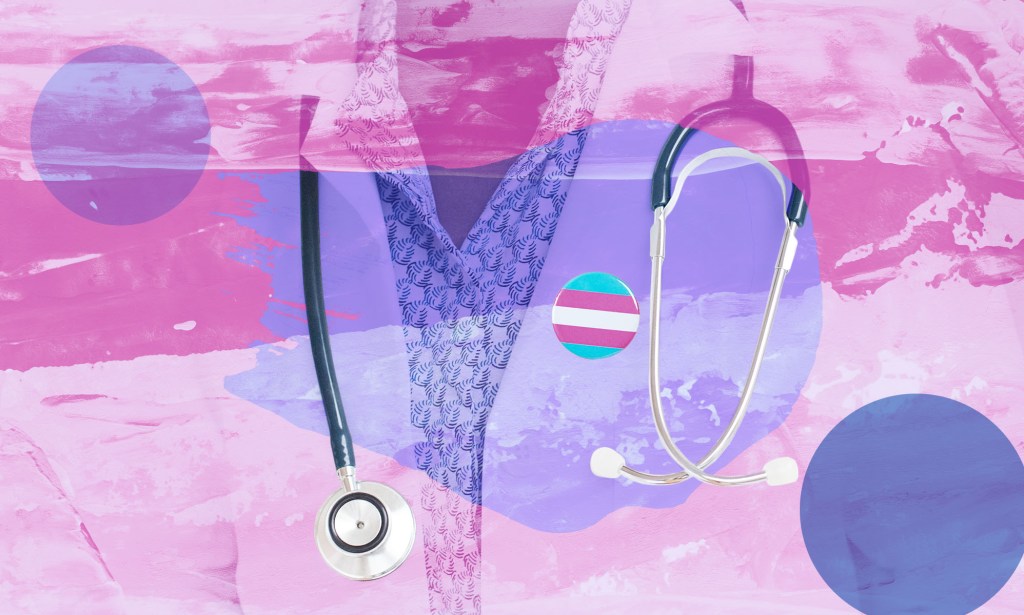
However, a study published in the journal Pediatrics in 2022 found that the “social contagion” isn’t supported by real-world data.
By analysing data from two CDC surveys conducted in 2017 and 2019, it found a small drop in the number of young people identifying as trans. It also found that the proportion of young people assigned female at birth who have come out as trans fell slightly.
“The sex assigned at birth ratio of TGD adolescents in the United States does not appear to favour AFAB adolescents and should not be used to argue against the provision of gender-affirming medical care for TGD adolescents,” the study concluded.
What has increased in recent decades is trans visibility. It’s a sign that society is becoming more accepting as rising number of trans people feel they can live openly and receive support, including gender-affirming care.
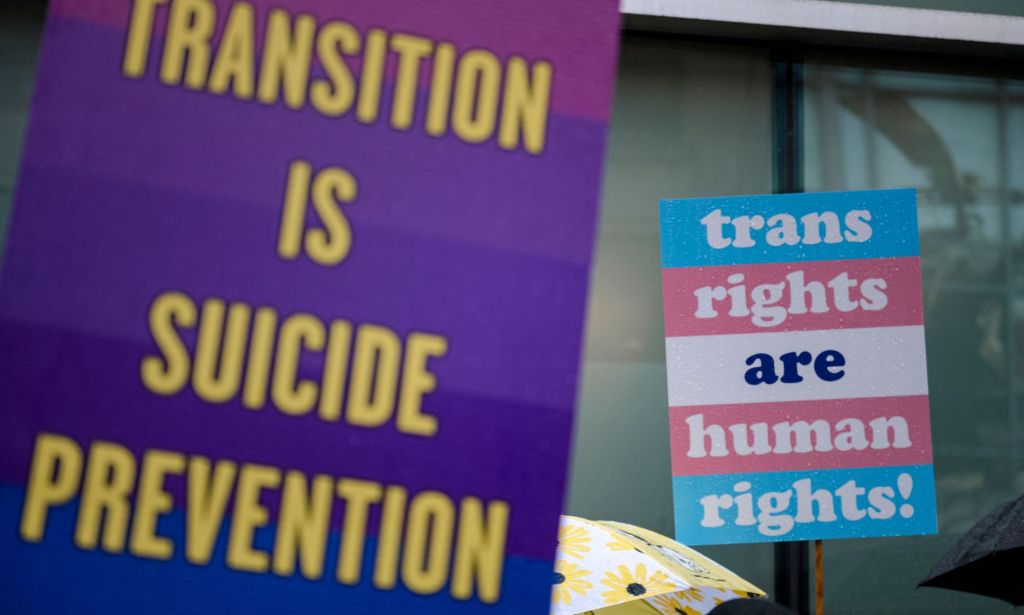
But as LGBTQ+ people have seen time and time again, increased visibility often leads to increased attacks by those who don’t understand the community and wish to shove us back into the shadows.
The “social contagion” theory feeds into harmful claims that view stigmatised groups as being contaminated and capable of corrupting or grooming young people. It reeks of rhetoric used throughout history to attack many different marginalised groups including members of the LGBTQ+ community, people of colour and those with disabilities.
Trans people aren’t new. History shows trans people have existed in different cultures across the breadth of human existence.
The myth: trans people regret transitioning
Detransitioning means stopping or reversing transition, which can include social or medical transition, or both. There are people who detransition, and there are a variety of reasons that can be behind such decisions, including transphobia, family pressure and non-affirming environments.
Gender-critical voices often use stories of detransition to suggest young people shouldn’t be affirmed in their transition, or be allowed to access gender-affirming care.
But recent guidelines by the World Professional Association for Transgender Health (WPATH) says several studies show that there are “low rates of patient regret and high rates of patient satisfaction” with gender-affirming treatments and surgeries for trans people.
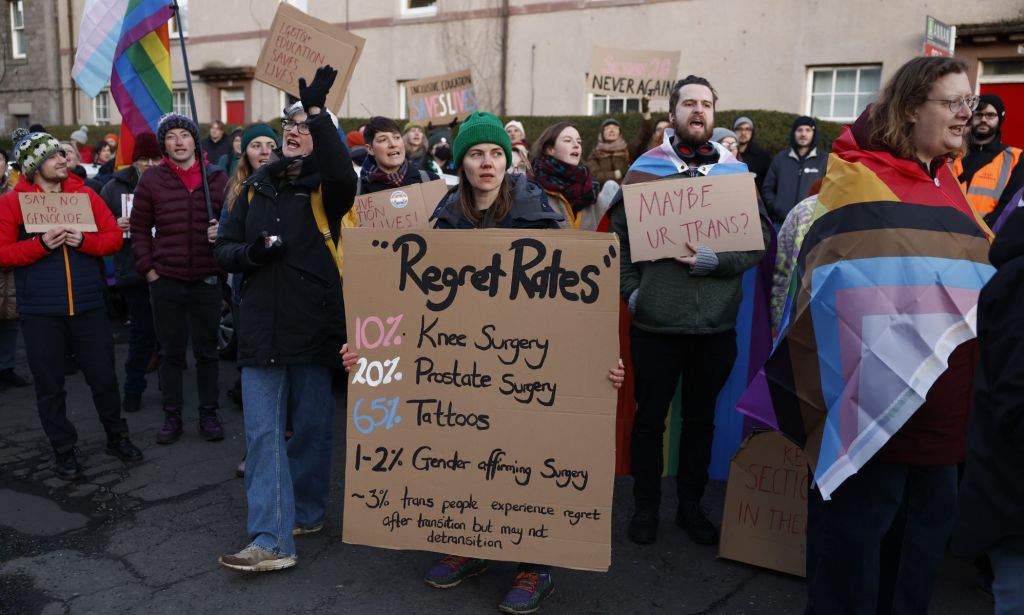
Separately, a 2019 survey of 3,398 attendees of a gender-identity clinic in the UK found that just 16 – about 0.47 per cent – experienced transition-related regret. Of these, even fewer went on to detransition.
Additionally, a North American study found that 94 per cent of children who came out as trans continue to identify as trans five years later. Approximately 1.3 per cent of young people transitioned to another identity before returning to their trans identity while 2.5 per cent later identified as cisgender and 3.5 per cent as non-binary.
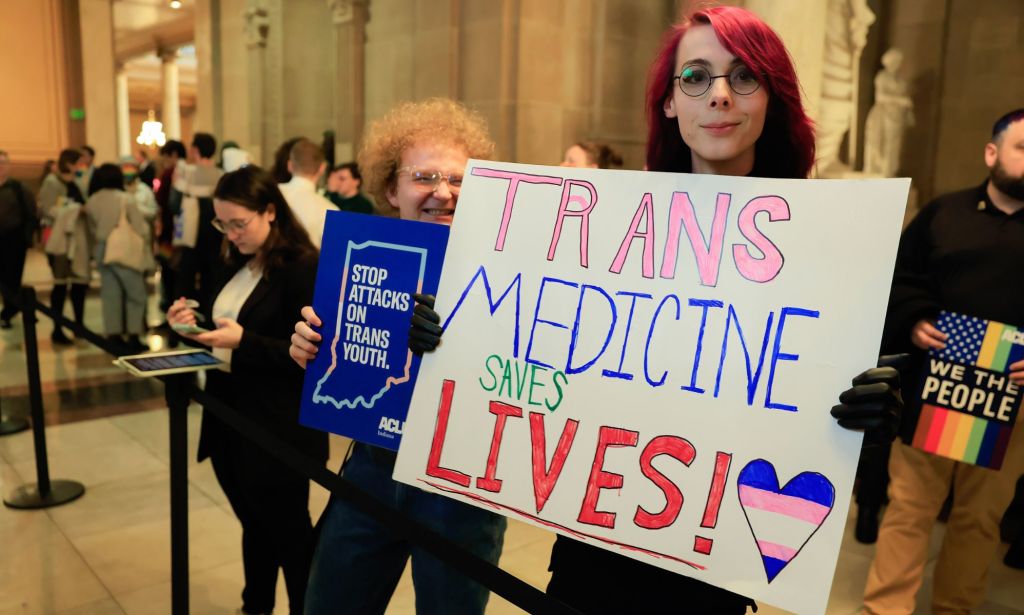
There is an established consensus among most major medical organisations that gender-affirming care is vital, and countless studies show it’s harmful to prevent a person affirming their gender.
The myth: Trans people, particularly trans women, participating in sports hurts cis women
The reality is that trans and non-binary people have been playing sports – whether it’s in schools, clubs or leagues – for years without any unfair advantages or issues.
But legislation to exclude trans people, particularly women and girls, from participating in athletics has been brought forward in several states across the US. Several sports governing bodies worldwide have instigated trans bans in recent years over concerns around “fairness”.
Lawmakers championing trans sports bans have continuously failed to cite cases in their states where trans athletes, by and far, had advantages over their cisgender counterparts.
A recent report found trans women don’t have any advantages over their cis peers when participating in elite sport.
Commissioned by the Canadian Centre for Ethics in Sport, the report is an in-depth review of all scientific literature published between 2011 and 2021 in English regarding trans women and their participation in elite-level sports.
The authors concluded that these studies show little evidence that factors relating to male puberty – such as lung size and bone density – produce an advantage for trans athletes, and that trans women who have begun testosterone suppression have no clear biological advantage.
The report did find strong evidence” that “elite sport policy is made within transmisogynist, misogynoir, racist, geopolitical cultural norms”.
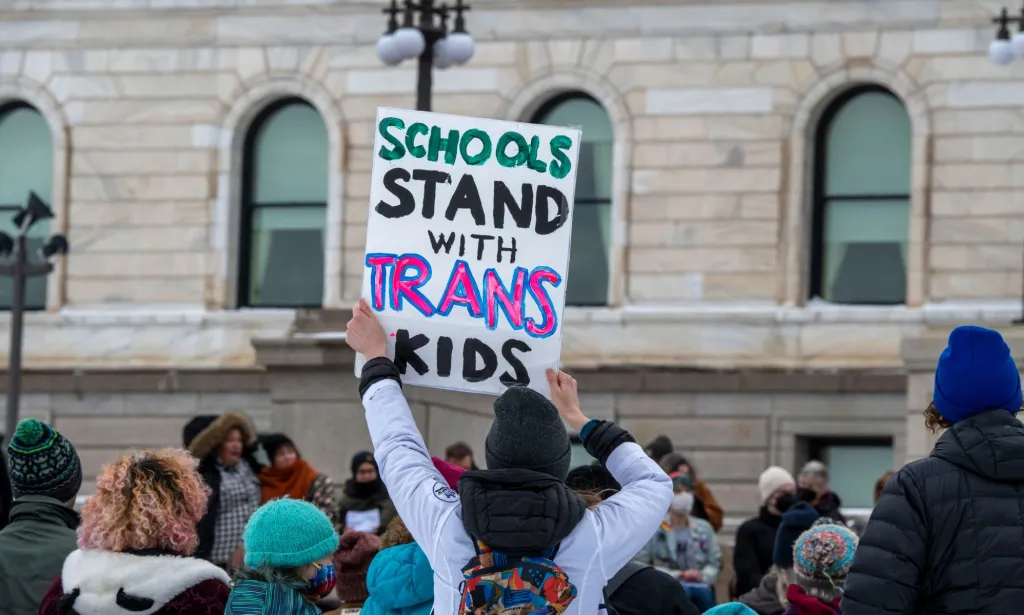
Additional research found the role testosterone plays in trans eligibility rules in athletics is often exaggerated as the hormone has little impact in performance differences.
Trans sports bans do nothing to protect or support girls and women in sports. That’s because while there are real issues facing women’s sports – including unequal pay, racism and rampant sexual assault and harassment – trans participation in athletics isn’t one of them.
Bans push kids and young people away from the life-changing power of sport. It deprives them of the invaluable lessons that taking part teaches, as well as the benefits that physical activity has on mental and physical health.
[ad_2]